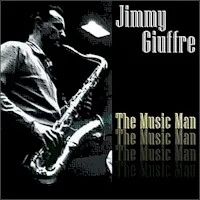Styles: Guitar Jazz, Fusion
Year: 1986
File: MP3@320K/s
Time: 54:56
Size: 128,4 MB
Art: Front
(4:33) 1. Facts of love (with Karyn White)
(4:17) 2. True Confessions
(4:11) 3. Jamaica
(4:16) 4. Back In Love
(5:21) 5. Kristen
(4:20) 6. Private Passion
(5:36) 7. Sand castles
(5:04) 8. Keep On Lovin'
(5:21) 9. Midnight Snack
(6:50) 10. Facts of Love [Actuality Mix]
(5:02) 11. Facts of Love[Dub]
Private Passion
Year: 1986
File: MP3@320K/s
Time: 54:56
Size: 128,4 MB
Art: Front
(4:33) 1. Facts of love (with Karyn White)
(4:17) 2. True Confessions
(4:11) 3. Jamaica
(4:16) 4. Back In Love
(5:21) 5. Kristen
(4:20) 6. Private Passion
(5:36) 7. Sand castles
(5:04) 8. Keep On Lovin'
(5:21) 9. Midnight Snack
(6:50) 10. Facts of Love [Actuality Mix]
(5:02) 11. Facts of Love[Dub]
Jeff Lorber reached his commercial peak with Private Passion, an album that has more to do with urban contemporary singing than it does with instrumental pop-jazz. Because it features R&B singers so prominently, Private Passion is a perfect example of what Lorber meant when, in 1998, he complained that the mid-'80s found him becoming "a sideman on my own records." In the 1990s, the keyboardist would return to giving himself a lot of solo space, but on Private Passion, Lorber the soloist/instrumentalist isn't the main attraction. The main attraction is the R&B singing of Michael Jeffries and Karyn White, whose memorable performance on the single "Facts of Love" not only put her on the map in the R&B market, but also did a lot to make this album the big seller it was. Private Passion does contain a few pleasant, if unremarkable, pop-jazz/NAC instrumentals. Freddie Hubbard takes a melodic flügelhorn solo on "Kristen," while guitarist Larry Carlton is employed on the Caribbean-flavored "Jamaica." But on the whole, Private Passion leaves jazz fans out in the cold, although it's often impressive and rewarding from an urban contemporary standpoint. ~ Alex Henderson http://www.allmusic.com/album/private-passion-mw0000188465
Jeff Lorber (Guitar, Synthesizer); Robbie Buchanan (Synthesizer); Larry Carlton (Guitar); Howard "Buzz" Feiten, Dan Huff (Guitar); Freddie Hubbard (Flugelhorn); George Howard (Sax soprano); Bunny Hull (Vocals); Michael Jeffries (Vocals, Vocals Background); Evan Rogers, Carl Sturken (Vocals Background); Brock Walsh (Drum Programming); Karyn White (Vocals).
Jeff Lorber (Guitar, Synthesizer); Robbie Buchanan (Synthesizer); Larry Carlton (Guitar); Howard "Buzz" Feiten, Dan Huff (Guitar); Freddie Hubbard (Flugelhorn); George Howard (Sax soprano); Bunny Hull (Vocals); Michael Jeffries (Vocals, Vocals Background); Evan Rogers, Carl Sturken (Vocals Background); Brock Walsh (Drum Programming); Karyn White (Vocals).
Private Passion




















